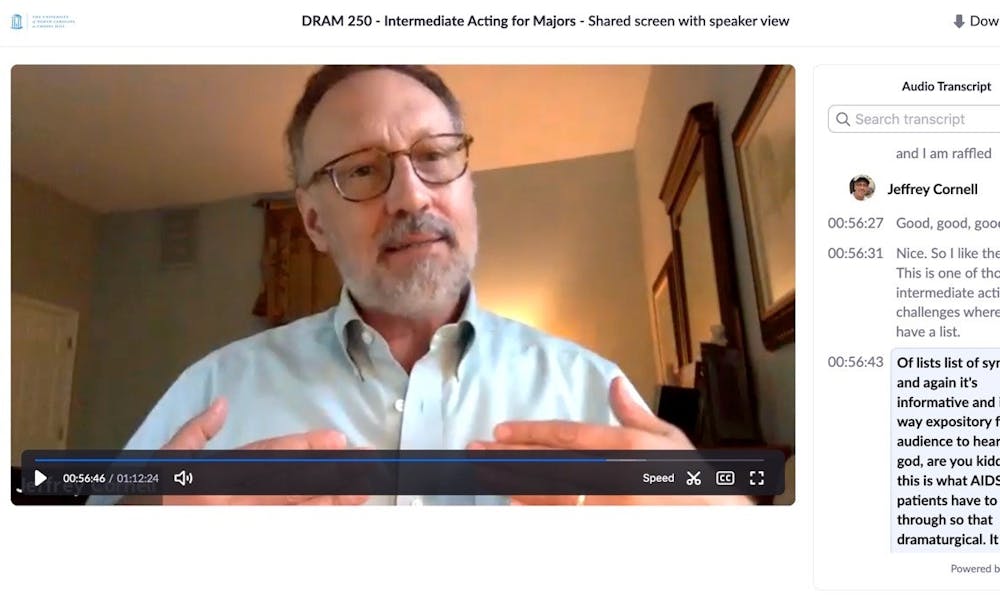Seven UNC undergraduates gathered on Zoom for their Intermediate Acting class with professorJeffrey Cornell on Aug. 20.
Acting is about creating close connections, but for this year’s class, the challenge is doing so from miles apart.
After cheerful hellos and a cameo from someone’s cat, the group resumed its work on the playwright Tony Kushner’s “Angels in America.”
Students shared what they’d discovered in their research homework about the character Roy Cohn, who is based on the real-life lawyer and political figure. Cornell emphasized how this research could support their acting.
“It grounds you in that world so specifically and personally that you can then find your character’s place in it, and feel their need as your own,” Cornell said.
Then the students were ready to work on two-person scenes from the play. The rest of the class turned off their microphones and cameras, leaving the actors virtually alone together.
Acting for the theater is intimate work — the ability to see, hear and feel another person in the same shared space is vital. When that work moves online, can it still provide the same value? Theater practitioners around the world are wrestling with this question.
One solution is to cancel or postpone classes entirely. UNC's Master of Fine Arts in acting program gave deferments to this year’s entire incoming class, Cornell said.
For those classes still in session, there are three main options: online, in-person with masks and distancing or an online/in-person hybrid. Duke University’s theater studies department is currently offering classes of all three varieties, professor R. Darren Gobert said in an email.




